-
 Gift Your Sibling Something Unique on Raksha Bandhan 2019: Choose from Our 12 Recommendations for Brothers and Sisters to Let Them Know How Much You Care!
Gift Your Sibling Something Unique on Raksha Bandhan 2019: Choose from Our 12 Recommendations for Brothers and Sisters to Let Them Know How Much You Care!
-
 8 Beautiful Rakhis for Brother and 10 Creative Rakhi Gifts for Sister (updated 2019). Plus A Look at the Traditions Surrounding Rakhi
8 Beautiful Rakhis for Brother and 10 Creative Rakhi Gifts for Sister (updated 2019). Plus A Look at the Traditions Surrounding Rakhi
-
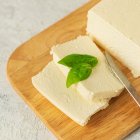 Ever Wondered How to Make Paneer at Home? Here is the Complete Guide to Take Out Soft and Creamy Paneer from Milk at Home (2021)
Ever Wondered How to Make Paneer at Home? Here is the Complete Guide to Take Out Soft and Creamy Paneer from Milk at Home (2021)
What are Probiotics? The 2 Types of Probiotic Bacteria You Must Know About!
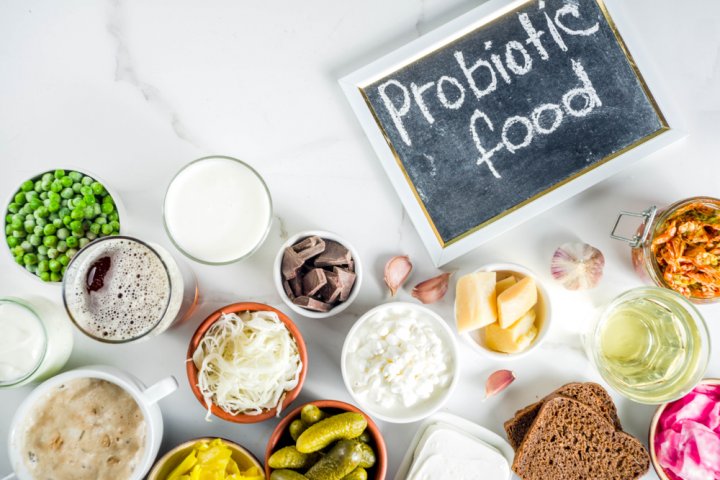
The word “Probiotic” is derived from the combination of two Greek words, which are Pro (promoting) and Biotic (life), and it’s rightly said so, as the regular use of Probiotics promotes healthy life by enhancing digestion and immunity as a byproduct.
Bacteria, in general, are considered harmful for humans, and we usually take antibiotics to destroy harmful bacteria or use antiseptics and soaps to get rid of them. But there are good bacteria as well, and they are essential for our survival because they fight with the bad bacteria and save us from diseases and other problems that may be caused due to the harmful bacteria.
Probiotics are good bacteria living in our gut, and they are especially helpful in digestion, thus helps you to be fit and healthy as most of the diseases start due to an unhealthy digestive system. Whenever you take an antibiotic, it kills some good bacteria along with bad bacteria, and probiotic foods help to replace these good bacteria. Moreover, probiotics help the body to work smoothly by keeping a balance of good and bad bacteria.
Probiotic bacteria are classified into two groups, namely Lactobacillus, which is the most common probiotic and found in yogurt, and other fermented foods, and the other type is Bifidobacterium, found in some dairy products. Lactobacillus is helpful in conditions like Diarrhea and Lactose Intolerancy, whereas Bifidobacterium can ease some stomach problems like irritable bowel syndrome and inflammatory bowel disease (IBD).
Probiotics help the food to easily pass into your stomach by stimulating nerves that control the movement of food through the intestine. Some research shows that taking probiotics is helpful in medical conditions such as allergies and colds, urinary and vaginal health, oral health, and skin conditions like eczema.
Benefits of Probiotic Food
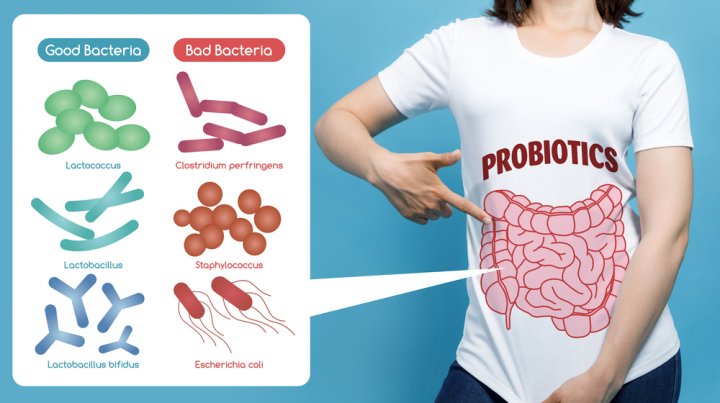
Probiotics are still not a very popular concept among the masses and are still in its nascent stage in the food and supplement industry, but it starts the journey with you even before your birth as during a normal delivery, the newborn gets bacteria like Bifidobacterium, Lactobacillus, Bacteroides, and Escherichia coli from her mother. Whereas children born from C-Section aren’t fortunate enough to get a transfer of these bacteria from their mother, thus are more prone to allergies, below average immune system, and lower levels of microflora in the intestine, therefore high chances of digestive problems.
There are two ways in which probiotics protect us from bad bacteria. The first and most proven is by providing a healthy balance to our digestive tract, thus smoothening the digestive process. Probiotics is as such a boon for bad lifestyle formed by the ingredients of lack of sleep, poor food habits, stress, anxiety, constant pressure to perform, excess use of antibiotics, smoking and drinking, etc. Secondly, probiotics strengthen the immune system, which is our defense against external agents like germs and viruses. Probiotics create a natural balance in the body to let the immune system do its work diligently.
People suffering from weak digestion, stomach-related ailments, falling sick often, and irregular lifestyle should include probiotics in their diet as it’s never too late to have optimum digestion and re-strengthen the immune system. Recent researches have shown the benefit of probiotics in the prevention and treatment of Diabetes (Type 1 and 2) and obesity. Not only this, but it also benefits the health of the oral cavity, reproductive tract, skin, and lungs.
Simple Probiotics Indian Foods You Can Make Right in Your Kitchen!
Dahi
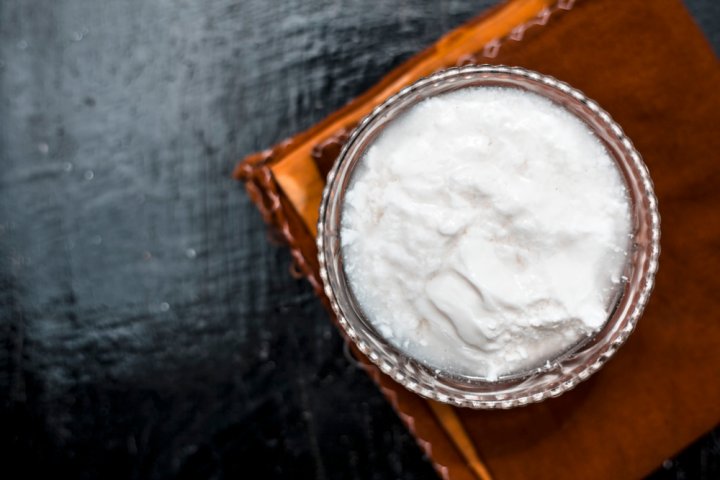
Dahi or curd is liked by many, and in most households is an essential part of the meals during summers and a few others like taking it round the year as well. Nowadays, people tend to buy it from the market rather than making at home owing to their busy lives, but packed curd is often made using chemical procedures and isn’t fermented long enough. Whereas, homemade curd when fermented for 24 hours, uses a major part of the lactose, and probiotic goodness is established in the curd. It’s quite simple to make curd at home with ingredients easily available.
How to Make
- Take half a liter of milk in a pan, boil it on low to medium flame and let it simmer for 10 minutes.
- Remove from the gas and allow cooling down. When the milk is at lukewarm temperature, mix 2 tbsp of curd and stir until it blends well with the milk.
- Transfer the mixture into a clay pot, cover and let it sit for 8 to 10 hours (to develop strong probiotic properties, keep for up to 24 hours), and don’t disturb the bowl else the curd will not set properly.
Dosa and Idli
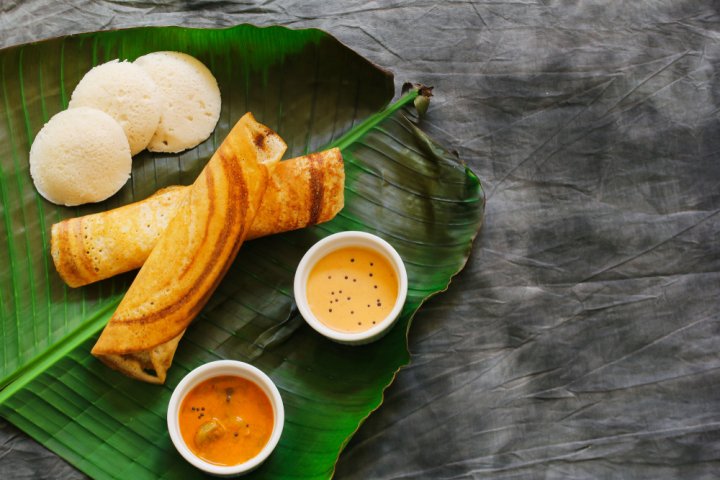
This delicious south-Indian delicacy is rich with probiotics! Here's how you can make it:
Ingredients
- 1 cup urad dal
- 4 cups idli rice
- 1 teaspoon fenugreek seeds
- 2 teaspoon rock salt.
How to Make
- Rinse the dal and rice separately under running water and soak them in separate bowls with 2 – 3 cups of water for about 6 hours.
- Add the fenugreek (methi) seeds to the dal while it’s soaking in water. After 6 hours, drain water from the dal and transfer it to a grinder.
- Add 1.5 cups of cold water and grind the dal to make a fine paste. Transfer the rice to a large bowl and then repeat the process with the rice as well with the same quantity of water (you can gradually increase the water if the paste is not smooth).
- Now transfer the rice paste into the same bowl as the dal and add rock salt to this mixture. Using your hands, mix the paste and the salt uniformly for about 2 minutes and then cover the lid.
- Keep it for 12 – 14 hours, and you’ll see the paste becoming frothy and bubbly. To check if the batter is done, drop a little amount in a bowl with clean water, and if the batter floats, then it’s fermented else would require a bit more time.
You can make crispy dosa and soft idli from this batter.
Dhokla
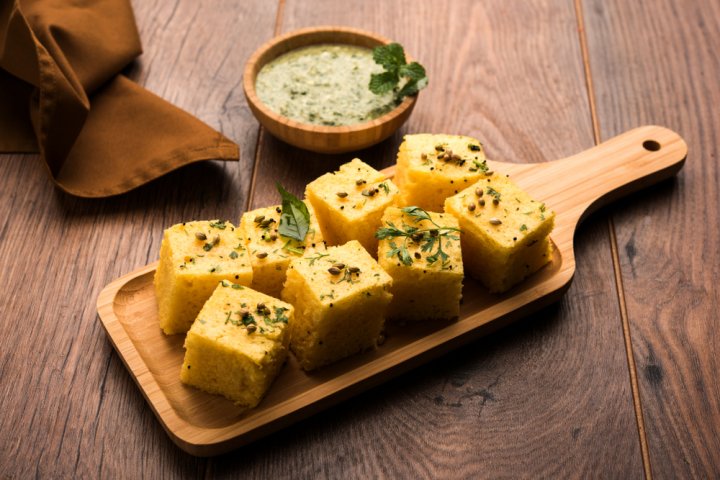
Dhokla is a Gujarati snack that is tasty and also is a light food with health benefits of probiotics.
Ingredients
- 1 cup gram flour (besan)
- 1 teaspoon salt
- 1 tablespoon refined oil
- 1 teaspoon mustard seeds
- 1 teaspoon sugar
- 1 ¾ teaspoon lemon juice
- 1 ½ cup water
- ¾ teaspoon baking soda
- 15 curry leaves
For garnishing
- 1 teaspoon coconut powder
- 1 handful coriander leaves
- 4 sliced green chilies
How to Make
- Take gram flour, water, salt, baking soda, and lemon juice in a big bowl and mix well. Let it sit and undergo the fermentation process for 2 hours (in winters, it might take longer).
- Add some boiled water in a steamer and grease the upper level with oil. Transfer the batter in the utensil and steam cook on low flame for 15 minutes and then check with a toothpick.
- If the toothpick comes out clean, switch off the stove, and remove the vessel. Allow it to cool before cutting it into pieces.
- Now comes the tempering part, for which we need to heat oil in a pan over medium flame, and once the oil is adequately hot, add mustard seeds, vertically sliced green chilli and curry leaves, add ½ cup water and let it boil for 5 minutes.
- Add sugar, green coriander leaves, and ½ tbsp lemon juice in this mixture. Turn off the stove and pour this mixture on the dhokla.
- Finish the garnishing with coconut powder and eat fresh with green coriander chutney.
Achaar (Indian Pickle)
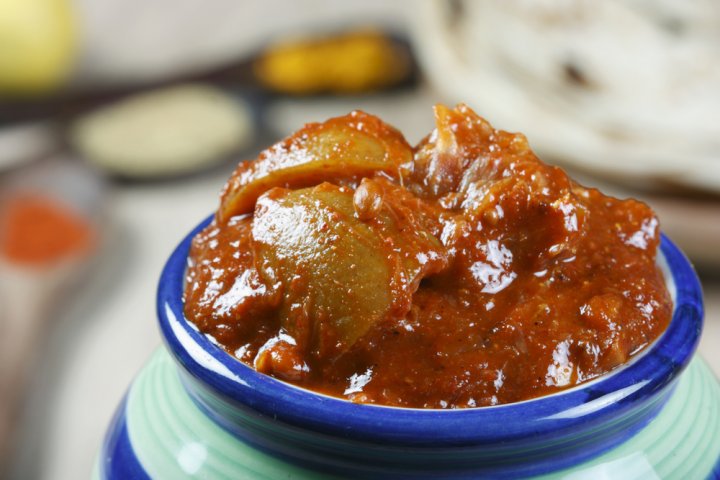
Many people avoid pickles as they have salt and oil in excess. But a natural homemade Achaar, when allowed to ferment under sunlight for few days, has enough of probiotics packed.
Ingredients
- Cauliflower and carrot (500 grams each, cut in 2 inch long pieces)
- Peas (200 gms)
- Mustard oil - 100 grams
- Yellow mustard 2 tbsp
- Red chili powder and turmeric powder (1 tsp each)
- Vinegar (1 tsp)
- Heeng (asafoetida) two pinches
- 2 ½ tsp salt
How to Make
- Heat half a liter of water in a pan, add 1 tsp salt, put cauliflower pieces in this water, cover and keep aside for 15 minutes.
- Heat water in another pan, which is sufficient to submerge all the veggies, add all the vegetables in this water (including cauliflower), and let it boil for 3 – 4 minutes, then cover the vessel with a lid and keep for 5 minutes.
- Now strain the water and let the vegetables dry on a thick cloth in the sun for 5 – 6 hours so that all the water dries up.
- Put all the vegetables in a big vessel and add salt, yellow mustard, red chili powder, asafetida (crushed), vinegar, and mustard oil.
- Mix all the ingredients properly, transfer in a glass or plastic jar and keep in sunlight for 3 – 4 days (4 – 5 hours every day), stir once in 2 days, and after four days your pickle is ready to tickle your taste buds.
Kaanji
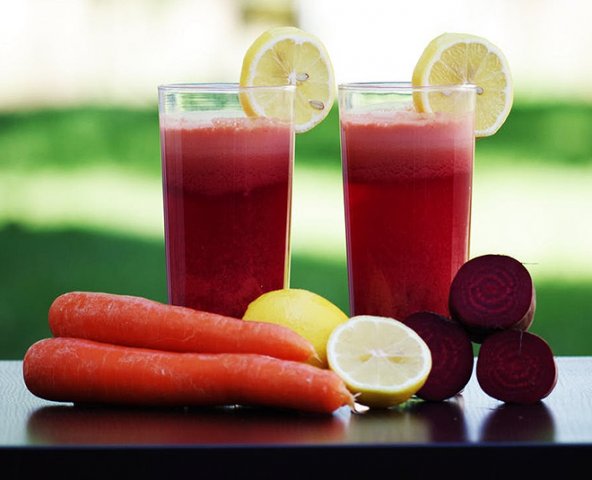
Kanji is a delicious, traditional Punjabi drink that is prepared by fermenting carrots and beetroot for a week, which boosts bacteria growth in the drink.
How to Make
- Take 5 large carrots (peeled), 1 large beetroot, 1 tbsp brown mustard seeds, 6 cups of clean water and 1 tbsp fine sea salt.
- Crush the mustard seeds in a mortar pestle, cut carrots and beetroot into long pieces and fill all the ingredients in a large glass jar.
- Cover the jar with a lid or thin cloth and let it sit in sunlight for about a week; ensure to stir it once a day with a wooden spatula.
- After a week, Kaanji will develop a tangy flavor, which indicates that the drink is ready. Strain the water and save the pickles as they can be enjoyed later, refrigerate this water and enjoy the chilled Kanji.
Cheese
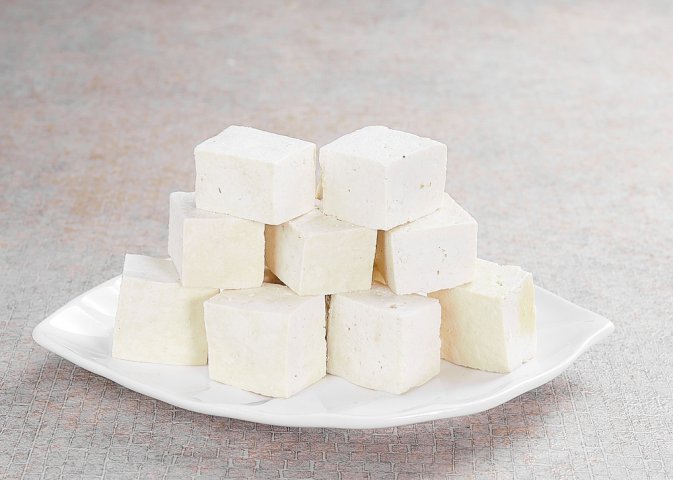
Making cheese or paneer at home is quite easy as the only ingredients you need are 1 liter of whole milk and 1.5 tbsp lemon juice or vinegar. Heat milk on medium heat in a heavy bottom pan and let it come to a boil while occasionally stirring so that it doesn’t stick to the bottom of the utensil.
Turn off the heat once the milk comes to a boil and start adding the lemon juice slowly. After 1 – 2 minutes, you’ll see the milk begins to curdle and the whey separating. At this point, stop adding the lemon juice and wait for 5 minutes till the milk curdles fully. Now drain the mixture into a muslin cloth, rinse with cold water to wash off any taste of lemon water. Join the ends of muslin cloth and squeeze off the remaining water, flatten the paneer, keep it on an even surface, place a heavy object and let it rest for 2 hours so that the fermentation is complete. Take out from muslin cloth after 2 hours, and fresh panner is ready to be cut into pieces.
Do Keep This in Mind: Side Effects of Probiotic Food
As per FDA guidelines, probiotics are regulated under food and not medicines; hence the manufacturers are not bound to show that these work for a particular condition. Hence, it’s all the more important to know about the cons of taking probiotic foods, especially if you are taking probiotic supplements.
Caution should be taken for pregnant women, children, older adults, and people suffering from severe infectious diseases and undergoing treatment for the same. For e.g., patients on dialysis, chemotherapy, or undergoing medication for heart, lung, or kidney problems should take Probiotic food only after consulting with their physician.
-
 Ever Wondered How to Make Paneer at Home? Here is the Complete Guide to Take Out Soft and Creamy Paneer from Milk at Home (2021)
Ever Wondered How to Make Paneer at Home? Here is the Complete Guide to Take Out Soft and Creamy Paneer from Milk at Home (2021)
-
 Looking to Spice Up Your Next Meal? Here Is a List of Best Food Delivery Apps in India for 2019
Looking to Spice Up Your Next Meal? Here Is a List of Best Food Delivery Apps in India for 2019
-
 समुद्र तट, प्रकृति का जादुई सौंदर्य, अनूठा आकर्षण सब कुछ है - पांडिचेरी यात्रा के दौरान वहाँ क्या देखें, क्या खाएं, कहां खरीदारी करें: पांडिचेरी में घूमने के 10 सर्वश्रेष्ठ स्थान (2020)
समुद्र तट, प्रकृति का जादुई सौंदर्य, अनूठा आकर्षण सब कुछ है - पांडिचेरी यात्रा के दौरान वहाँ क्या देखें, क्या खाएं, कहां खरीदारी करें: पांडिचेरी में घूमने के 10 सर्वश्रेष्ठ स्थान (2020)
-
 If You are Planning a Trip to Pondicherry in 2020, These are the Places to Visit for Foodies, Beach Bums and Shopaholics!
If You are Planning a Trip to Pondicherry in 2020, These are the Places to Visit for Foodies, Beach Bums and Shopaholics!
-
 Add Some Splendour to the Valentine's Day By Taking Charge And Gifting Your Boyfriend These 10 Awesome Gifts to Make His Day (2019)
Add Some Splendour to the Valentine's Day By Taking Charge And Gifting Your Boyfriend These 10 Awesome Gifts to Make His Day (2019)
Be Ready to Witness a Positive Change in Your Daily Energy!
As mentioned in this post, probiotics come with tons of benefits, and are definitely worth including in your daily diet. Apart from the mentioned probiotics, few more Indian options that provide you with probiotics are Buttermilk, Yogurt, Dark Chocolate, Kimchi, Soy Milk, and Green Peas. These foods are also rich in good bacteria and beneficial for your gut health and boosting your immune system.

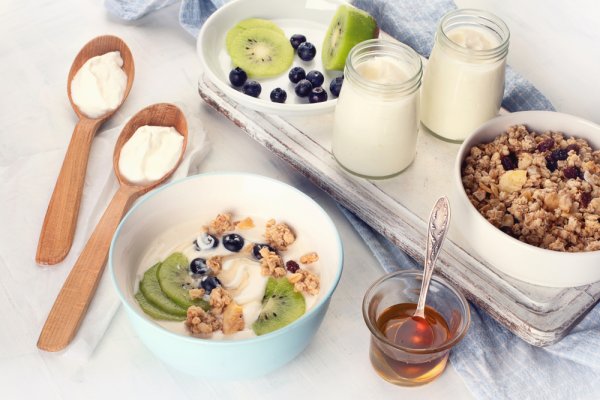
 Highlight the Best Facets of Your Incomparable Beauty: Discover the Best Face Highlighter Currently Available in India and Everything You Need to Know About Using Face Highlighters for Maximum Effect (2023)
Highlight the Best Facets of Your Incomparable Beauty: Discover the Best Face Highlighter Currently Available in India and Everything You Need to Know About Using Face Highlighters for Maximum Effect (2023)
 Forget the Blemishes and Get that Picture Perfect Flawless Radiance on Your Face: Check out the Best Foundations for Oily Skin Currently Available in India and Everything You Need to Know About Makeup Foundations (2023)
Forget the Blemishes and Get that Picture Perfect Flawless Radiance on Your Face: Check out the Best Foundations for Oily Skin Currently Available in India and Everything You Need to Know About Makeup Foundations (2023)
 Make Your Presence Felt Wherever You Go: Discover the Best Perfumes Under 2000 for Both Men and Women to Announce Your Arrival and Make Any Occasion Memorable (2023)
Make Your Presence Felt Wherever You Go: Discover the Best Perfumes Under 2000 for Both Men and Women to Announce Your Arrival and Make Any Occasion Memorable (2023)
 Protect Your Oily Skin from the Harmful Rays of the Sun: Discover the Best Gel Based Sunscreens for Oily Skin and Everything You Need to Know Before Buying One (2023)
Protect Your Oily Skin from the Harmful Rays of the Sun: Discover the Best Gel Based Sunscreens for Oily Skin and Everything You Need to Know Before Buying One (2023)
 Minor Blemishes and Wrinkles Affecting Your Confidence? Check out the Best BB Creams to Conceal Your Worries and Nourish Your Skin to Restore the Healthy, Radiant and Glowing Complexion Back Again (2023)
Minor Blemishes and Wrinkles Affecting Your Confidence? Check out the Best BB Creams to Conceal Your Worries and Nourish Your Skin to Restore the Healthy, Radiant and Glowing Complexion Back Again (2023)
